Predicting Tomorrow: The Art, Architecture And Fashion Of Deux Ex Mankind Divided
Deus Ex: Mankind Divided[
official site] is already looking like a worthy follow-up to Human Revolution as well as an inventive prequel to Ion Storm’s original cyberpunk classic. When we visited the studio to play the game earlier this month, we also spent time talking to two of the brains behind the game about the inspirations and processes that go into this bleak vision of the future.
First up, here’s Jonathan Jacques-Belletête, executive art director at the studio. We spoke to him about collaborative storytelling, fashion, architecture and graphic design. Along the way we learned about content cut from Human Revolution, the places that Deus Ex is going next and why Jacques-Belletête believes that India could be a perfect cyberpunk setting.
RPS: I find it fascinating when a film or game takes a real place and the design team have the task of grafting new or different elements onto the existing architecture. That’s such a huge part of what you did with Human Revolution and are now doing in Mankind Divided. What is the research process and how does an area take shape?
Jacques-Belletête: Well, that’s one of the big challenges of our game. Dvali [the theatre level described in
this hands-on] has some of that juxtaposition but the entire thought process you described is continuous in every aspect of a game like Deus Ex. It’s not 3,000 years in the future, nothing should be completely unrecognisable yet, the world hasn’t been erased and rebuilt.
Just like today, here in Montreal, down the street there is a theatre, around a hundred years old, and recently they renovated the facade. They left most of the structure from the old days but there are all these new materials. What we’re doing with Deus Ex is futuristic anticipation – we analyse the processes of how these things happen in real life. My motto is never to invent anything off the top of your head. It’s anticipation rather than invention. Always start with something that exists for real.
If you analyse how things are manufactured and how industrial design functions, and how architecture functions and how things are put together, you start to see patterns. Eventually you come to understand how things might be in 20 or 30 years. A lot of what we did with augmentation design in HR is actually starting to happen; people are working on these beautiful sculptural prosthetics, whether they’re athletes or war veterans, and some of this can be made through 3D printing.
Often what I say is that when you design a world like this, you have to wear many hats that don’t belong to your specific profession. So you have to be an urbanist, an architect, a plumber, a graphic artist, an interior director, a fashion designer – we’re none of these things! We’re game designers, even the artists are artists specifically for games. So if we’re trying to invent all of these things from the top of our heads, it’d be a mess. And that’s why we look to what already exists and then predict how it might be in the next five, then ten, then twenty, then thirty years. In doing the research, you discover stuff that is already completely out of this world.
RPS: Dubai is already otherworldly. A city of the future, unfinished and in flux. Parts of it are abandoned. It exists, in its present state, through force of will and technological brute force. Like Vegas. Are there specific architects you draw on or is that highly dependent on the location you’re working with?
Jacques-Belletête: It always depends on the location, but for this futuristic anticipation, there’s Zaha Hadid, if you look at what she has created, it’s completely mind-blowing. Some of her more conceptual things that haven’t necessarily been built beats anything that sci-fi movies do. Even some of the stuff that has been built is completely outlandish.
For fashion, we look at people like Gareth Pugh, who is probably my top British fashion designer. So, yeah, we do have our kind of main go-to people as inspiration for this stuff.
RPS: And how important is utility? Do these places have to feel as if they are functional?
Jacques-Belletête: It’s extremely important. Everything in Deus Ex is about credibility. And what’s interesting there is that we don’t care much about photorealism. Photorealism and credibility, in videogames at least, are two very different things. If you aim for photorealism, you can’t maintain the level of fidelity throughout and then the credibility is lost in a way that it wouldn’t be if you didn’t strive for that fidelity throughout. That’s not even getting into the whole uncanny valley problem – it goes to environments. If we have an environment and the team has really nailed it and it looks super realistic, but then another environment had to be done quicker or with less budget, or whatever, then the whole world becomes uneven.
You were aiming for a real world but you’ve failed to make it credible and even throughout. We’re aiming for something more like a graphic novel than photorealism, and that way it can be more homogenous throughout. Visual communication is more important than realism. We’re not trying to make you believe that these places resemble reality as you see it, but they should feel right – the size, the shape, the construction.
RPS: The colour pallette for the first game became quite famous.
Jaques-Belletête: Black and gold! Yeah! (laughs)
RPS: Dubai, at the beginning of the new game, has a lot of that gold. Prague, later on, not so much. I was reminded of Spec Ops: The Line, which also had a magnificent vision of decaying Dubai. In that game, the changes to the environments reflected the journey into the heart of darkness. How do you use the changing colour scheme to communicate ideas about the world and characters?
Jacques-Belletête: Oh, that’s absolutely something we do. There is colour scripting for emotions and moods throughout the game, following the narrative curve. But that being said, our colour pallette is very much tied into our analogies and metaphors, so if HR was all about the golden era of transhumanism – with the Renaissance, the Enlightenment and the myth of Icarus hanging over everything – that’s where the black and gold comes from. I you look at Vermeer, Rembrandt – they’re early baroque as well as late Renaissance – their spectrum comes into HR.
The gold also represents enlightenment, for the sun, whereas the black is the dystopian thing, the pit and the night, and so on.
Now, in Mankind Divided, the world isn’t embracing transhumanism as much. People are thinking, “this could be very very dangerous” and they’re taking a step back. And so it makes sense for that bold pallette to take a step back as well. If transhumanism is not the most positive thing in the world anymore, then that golden thread is going to be hanging in the background while the forefront is dominated by our corporate feudalism analogy.
The world is desaturated, a lot of blues, a lot of grays, a lot of matte browns, all that kind of stuff. But because we always go back to our core themes, whenever positive transhumanism experiences occur, whether that’s in the ghettoes or wherever, black and gold creeps back in.
RPS: What are the challenges of working in such a large team, where the art has to support narrative and game mechanics. You’re telling a story through environments that sits alongside and contributes to a more traditional narrative of dialogue and plotting. How does that all come together and what are the difficulties of the process?
Jacques-Belletête: Everything on Mankind Divided is easier. We know what this beast is now and we know how to harness it. That being said, for the visual storytelling collaboration there are two parallel things: one is the obvious task of visually explaining a character or environment that is described to us. We’ll have meetings and brainstorms to get that right.
For example, in HR, Adam’s apartment was quite successful for that. In production we actually called it Adam’s Museum because that name represented what I wanted it to be doing – explaining this guy’s past, from which you can read his present and maybe even his future and state of mind.
But because the game and the team are so big, we can’t have that amount of precision in the environment storytelling at all times. We leave a lot of leeway to the level and environment designers so that they incorporate smaller stories into the world, and implement those stories visually. Show don’t tell, right?
That’s a culture that we nurture a lot and it’s taken on a life of its own and we love that. It’s always being reviewed, of course, because if you leave that freedom one story might step on another story, or people can get so into it that they’re putting in things that are a little too much. There was a guy dressed as a hotdog in HR, just in the background of the city wearing a hotdog costume. You couldn’t really see him too well or get close to him, but it was still a little too much.
RPS: Are there flourishes like that though? Details drawn from local buildings here in Montreal or that the artists are familiar with from elsewhere?
Jacques-Belletête: Well, we go to Montreal in HR but the only building that is directly taken from the current city is the Olympic Stadium, where Picus Communications are based. The other thing is Detroit, which has some similarities to Montreal – all of those East coast cities have similarities: Detroit, Chicago, Boston, Montreal. It’s all that redbrick architecture. But as far as I remember the only building we recreated was the Olympic Stadium. We intended to have an actual Montreal city hub but that didn’t work out.
RPS: Are there any cities, or other environments, that you’ve always wanted to create through the lens of the Deus Ex world? Particular cities that you think lend themselves, artistically and architecturally, to this kind of art and technology style? Or even interesting level design?
Jacques-Belletête: There’s a place I’ve always wanted to go in Deus Ex. We’d planned to cover it in HR but we had to cut it and maybe one day we’ll go back. It was Bangalore in India. I think India is the perfect place for cyberpunk. It’d make a very new spin on it as well because the cyberpunk from the 80s and 90s mixed with Japanese and Asian culture, like Bladerunner and Shadowrun and all those things. That’s perfectly fine but we’ve seen quite a lot of it.
What I think is interesting about going to India is that we could create a similar feeling with different results. A mix of Eastern and Western culture, with all the same types of neon but with Sanskrit text, and all the symbolism from Hinduism mixed into it. And you still have all of these cluttered spaces, packed with people. It’s a place of extremes, in wealth, in class, in culture, all side by side.
RPS: I spent time living in Bangkok and love how layered it feels – modern billboards advertising products from every place on Earth sitting next to and above ancient Wats and floating markets that look like they haven’t changed in centuries. Even London has elements of that. And that fits in with the entire theme of the game – flesh with augmentations grafted on, and old urban space with the new bolted on top, sometimes to their benefit, sometimes uncomfortably.
Jacques-Belletête: I love that way of thinking about it. I’m constantly thinking that our environments are juxtapositions of the old and the new, but if deliberately have your arm removed when you’re 33 to have a newly invented augmented limb replace it, you’re reconfiguring yourself in a way that cities are reconfigured over time.
RPS: Do you ever want to escape the cities? When I think of this kind of sci-fi, the first image that comes to mind is that opening city sprawl in Bladerunner – not the rainy streets or the neon, but the city that reaches from coast to coast.
Jacques-Belletête: Cyberpunk is totally urban.
RPS: Do you never want to escape that or is there an issue in that change isn’t as noticeable outside the city? Maybe that’s a benefit though – the shock of the old.
Jacques-Belletête: We don’t believe that the change has to be 100% in your face at all times. In a Deus Ex game, yes, if we don’t convey the idea of change then that’s a failure – it’s one of the pillars. But there’s no rule to say that every space and every level needs to show that.
We have thought about leaving the city. In HR at one point there was going to be a forest, a reason to go out into the woods, but that didn’t make the cut. In Mankind Divided, there is a place that you’ll have to go to and it feels…quite outdoorsy (laughs).
I don’t have a problem with escaping the city. I think it’d be great. There are unofficial sequels to Bladerunner, not written by Philip K Dick, and one of them has Deckard going out into the woods. I haven’t read that since I was young.
RPS: Bladerunner feels like a world without woods. Concrete has covered the world. It almost fits with some Victorian fears of urban expansion and steam trains – this idea that technology and urban sprawl has become dangerous and out of control.
When you take somewhere like Prague, are you interested in exploring the idea of something old being torn out and replaced, or the sometimes uncomfortable relationship between the modern and the ancient?
Jacques-Belletête: Do you mean am I interested in that as far as the game goes?
RPS: Doesn’t have to be in the game (laughs). We can do life.
Jacques-Belletête: Everything in the game plays with that expression of the old alongside the new. The Dvali theatre that you saw is such a small part of the Prague we’ve built and it’s one of the least changed portions. It doesn’t look a great deal different to the Prague of today, robots aside.
Elsewhere in the hub, some of the work that our artists have done is just absolutely beautiful and so strange. Seventeenth and eighteenth century buildings, some older, and then this super-modern stuff right next to it. And it’s not just the architecture, it’s the entire sense of urbanism. Also the ads!
RPS: Are the propaganda and ads drawn from any specific sources?
Jacques-Belletête: There are a few different styles that we’ve used. It’s inspired by some early twentieth century graphic design but we don’t want to copy a style too much because copying propaganda has been done quite a bit, artistically speaking. It becomes kind of cliche, using the Soviet style or whatever. There is a bit of it but we try to maintain a new feeling.
RPS: Does it make a difference that you’re using more corporate rather than government propaganda? Or is that not even the case?
Jacques-Belletête: We’re probably using more government propaganda actually. There’s both and, hey, in the Deus Ex world the line between corporations and governments isn’t quite so well defined.
RPS: It’s not all that well defined in our world.
Jacques-Belletête: That’s a good point! I guess in the game we have the same problem as in the real world – it’s hard to separate the two. But we do design a lot of the advertising and government material fresh rather than drawing from particular sources.
RPS: Going through the playable build and trying to pick up as much information as I can, I’m looking at soda adverts and all kinds of things. Do you know what these products and companies are? Is there a Deus Ex bible that gives them all a place and a meaning, or is there room for stuff that is just allusion and in-joke?
Jacques-Belletête: It’s both. The basic rule with adverts is that they have to at least look contemporary and then we try to use some insight as to where graphic design might go in the coming years. Sometimes they’re just plain inside jokes though – to do with someone’s newborn or their pet.
RPS: Fashion seems like the ultimate stumbling block. Maybe I just don’t know anything about it – and you can tell that by looking at me – but it seems so unpredictable. How do you imagine future fashion? Fashion often looks ridiculous five years later, even if it didn’t at the time.
Jacques-Belletête: Fashion is tough to predict but what we do – and what was very seldom seen in games before – was just to get fashion right, period. We don’t want to make characters that look like character designs but characters that are actually wearing clothes. Outfits that they have put on rather than skins that are put of them. That’s what we put a lot of effort into when we made HR, as well as creating our own little signature with cyberpunk meets Renaissance.
We’ve continued that mentality with the feudalism in the new game. We mix our motifs together to create an idea of what fashion might be but what we put the most effort into is creating garments, creating clothes and then putting them onto people. That’s what fashion is about: there is a character and there is clothing. The character is not the clothes, they are a thing that the character wears.
The most important thing is that we’re always looking away from the thing that we’re trying to make. If you want to design a setting in a game, don’t look to games, look to architecture and plumbing, and if you want to design a coffee mug, look at an airport.























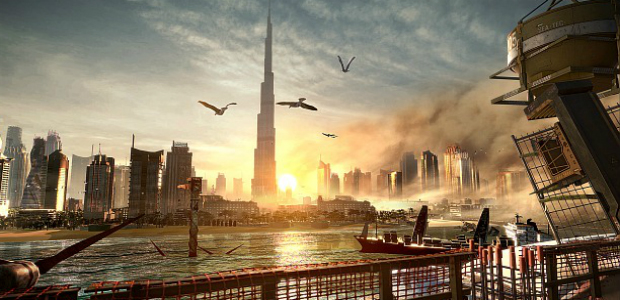
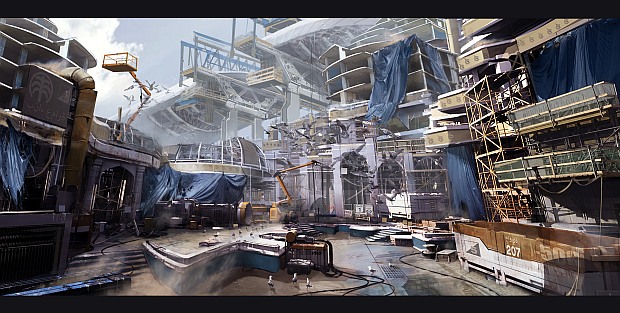
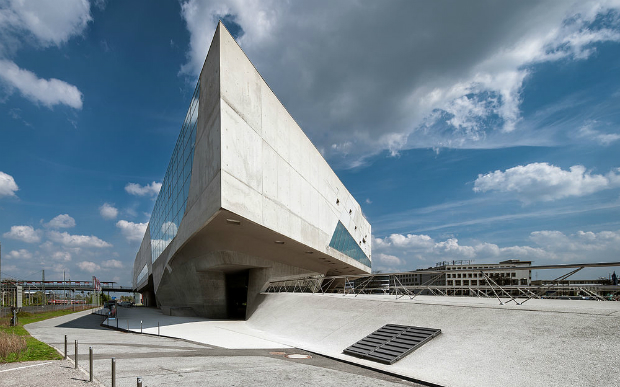
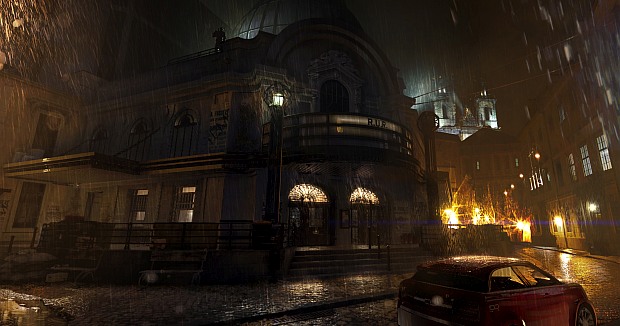

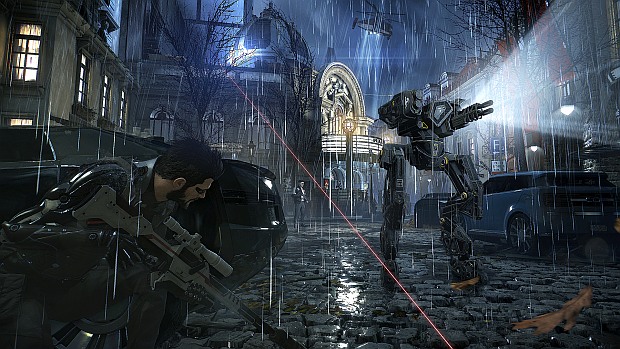
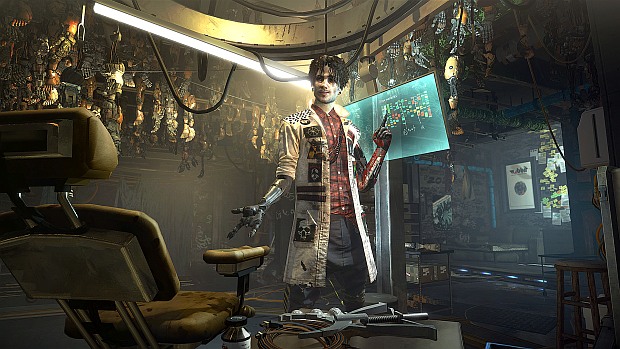
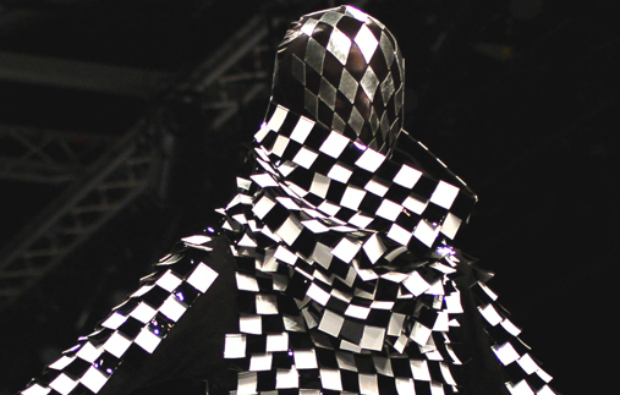


![The Year of Incline [2014] Codex 2014](/forums/smiles/campaign_tags/campaign_incline2014.png)


